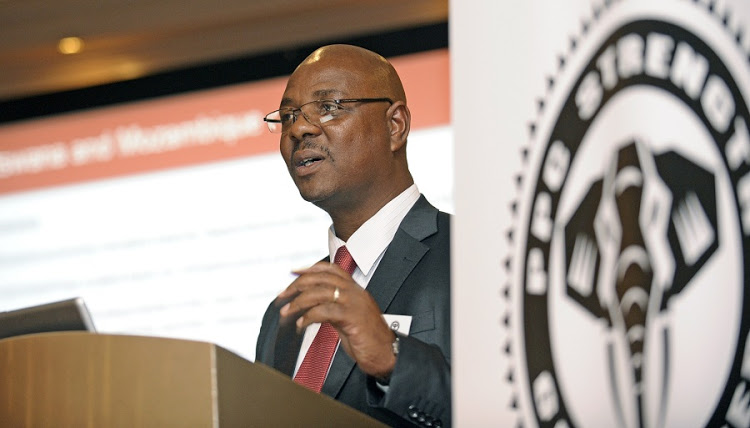

a key partner in the economic integration of the continent envisaged by the African Continental Free Trade Area
By Mokate Ramafoko, PPC Managing Director: International Operations
The world recently witnessed the signing of the biggest free trade area by Heads of African Governments in Kigali. Signed in March this year, the African Continental Free Trade Area (AfCFTA) is the largest such free trade area when one considers the number of countries involved.
The African continent currently consists of 55 countries, with 55-odd currencies (some have chosen to adopt the US dollar), 55 regulatory frameworks and, in simple terms, 55 different sets of red tape. This scenario means doing business on the African continent can be challenging, both for foreign and domestic investors. There is thus a general consensus amongst economists and scholars alike that when it comes to force, the Trade Area will yield major economic benefits for the continent, its citizens and businesses alike.
But what does it mean for African businesses and international investors? What opportunities does it offer for our industry?
The Trade Area gives the infrastructure-build programme an added impetus. A researcher at the Cape-based Trade Law Centre (trac), Talkmore Chidede, contends “the AfCFTA’s objective to boost intra-African trade cannot be achieved without adequate trade-related infrastructure”[ii]. African governments, the private sector, the African Union (AU) and its partners will have to embark on a serious and deliberate programme to build the necessary economic infrastructure to facilitate economic integration.
The construction industry should play a leading role in harnessing the development of this much needed infrastructure. The rapid development of infrastructure, especially regional mega projects in the continent is urgent and critical. Infrastructure is a catalyst for economic growth, competitiveness and integration. An example is efficient port and transport infrastructure that facilitate and ease movement of goods and people between different economies. Modern and world class infrastructure will expedite the economic integration as envisaged by the Free Trade Area, ensuring that the barriers of trade are removed both on paper and physically.
With this understanding, the AU, in partnership with the UN Economic Commission for Africa, African Development Bank and the NEPAD Planning and Coordinating Agency, among other significant role players, has developed a focussed programme to attend to the infrastructure challenge – the Programme for Infrastructure Development in Africa (PIDA). The programme is “a continental initiative to help address the infrastructure deficit that severely hampers Africa’s competitiveness in the world market”.[iv]. Most would battle to build the critical infrastructure on their own and require partners that are driven by the same objectives.
A proactive approach involving delivery-focussed partnerships will be a game changer as it will bring together small and big economies to deliver mega regional infrastructure projects. The essential benefit of regional infrastructure is the formation of large, competitive markets instead of the current collection of small, isolated, and inefficient ones. Undoubtedly, the industry will benefit during the construction phase as large competitive markets form as a result of integrated economic development.
Perhaps the most obvious example is logistics ports that will facilitate easy movement of goods across the continent with a consequence of reduction in logistics costs. Initiatives such as the North-South Corridor and the Southern Africa Development Community (SADC) Infrastructure Master Plan present massive opportunities for public private partnerships (PPPs).
There is recognition that PPP arrangements assist governments to close material financial, managerial and technical gaps, while supporting regional integration. For example, there is a US$100 billion funding gap for the SADC Infrastructure Plan. The North-South Corridor project, conceived as the area between Durban and Dar es Salaam, is equally ambitious and costly. It comprises 157 projects in the North-South Corridor and includes 59 road projects; 38 rail projects and six bridge projects (PIDA).
The AfCFTA provides a single rule book for doing business and investing in Africa, a rules-based framework for investing and doing business in the continent. It is precisely what the continent needs at this moment. Harmonisation of trade and investment rules, overcoming the constraints associated with small economies, achieving economies of scale and integrating African economies are the ultimate objectives of the AfCFTA.
But this will and can only be realised if all critical sectors of the economy are mobilised, engaged and focused in a single-minded manner.
End
More news
- STATE-DRIVEN OPPORTUNITIES FOR SA CONSTRUCTION COMPANIES BUT MANAGING RISK IS A PRIORITY
- PART 4: SA’S TRADE DILEMMA: A PODCAST DISCUSSION WITH DONALD MACKAY
- CONCOR KICKS OFF OXFORD PARKS BLOCK 2A PHASE I PROJECT
- PART 3: SA’S TRADE DILEMMA: A PODCAST DISCUSSION WITH DONALD MACKAY
- MBA: ‘HOW CONSTRUCTION FIRMS SHOULD PREPARE FOR THE WORST’





